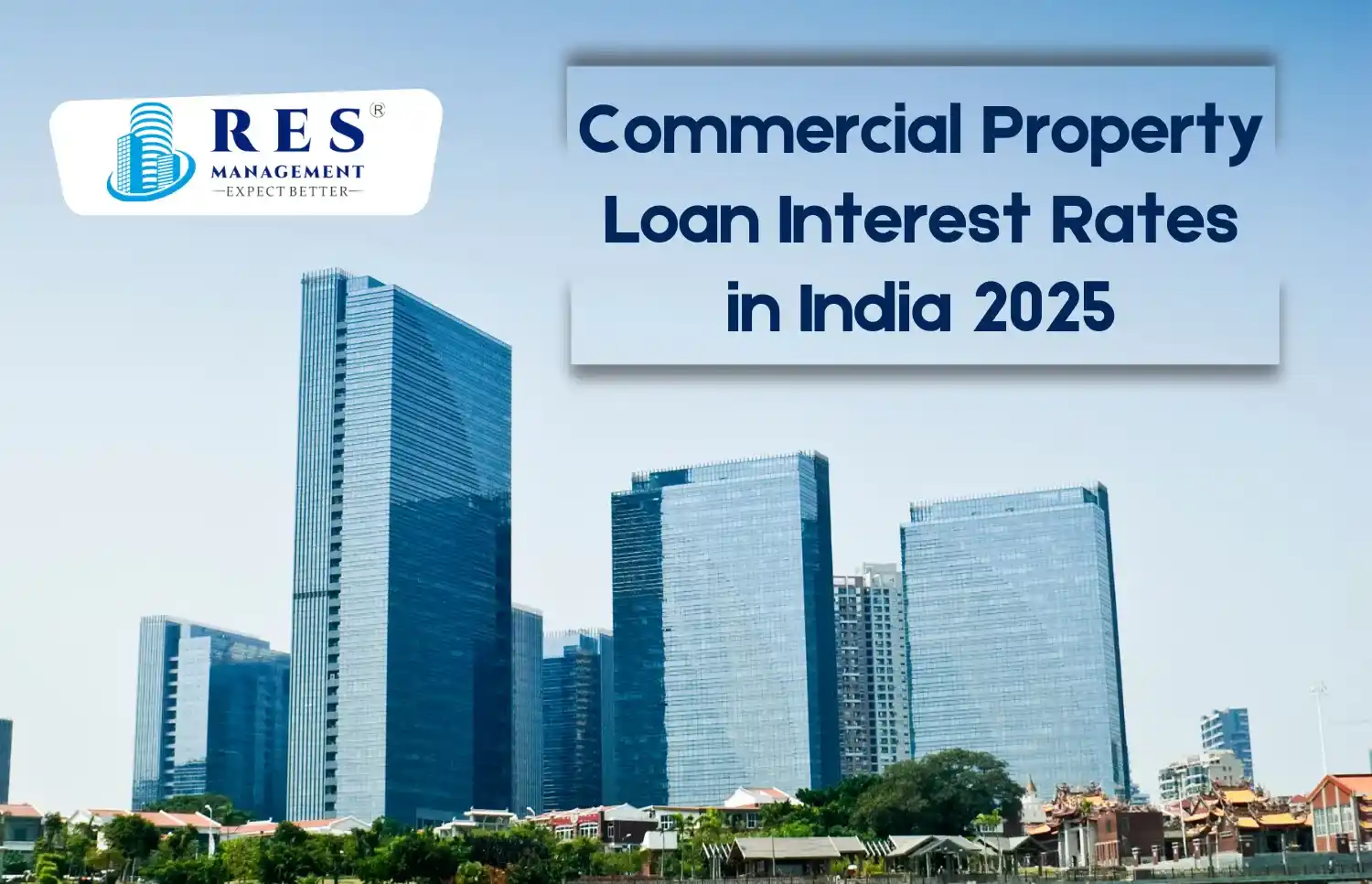
Urban infrastructure and business hubs are growing rapidly across India, and so is the demand for commercial properties. This rapid growth has made investing in commercial property a promising avenue for long-term wealth generation.
Whether you are planning to purchase a retail showroom, office space, or leasing commercial real estate, commercial real estate offers high potential returns. However, investing in commercial real estate often requires significant capital, making commercial property loans a crucial financial tool.
In today’s blog, we will break down the commercial property loan interest rate in India, along with the factors influencing these rates, and provide insights into making smart CRE investments. If you are someone planning to invest in commercial property, this blog is for you.
What is a Commercial Property Loan?
A commercial property loan is a loan made available by various banking institutions and NBFCs and is utilised for someone to buy or construct a commercial space. This includes buildings like office spaces, retail outlets, warehouses, showrooms, service apartments, etc.
Unlike home loans, these are evaluated based on the ability of the commercial property to generate revenue; therefore, those properties follow different eligibility criteria, and usually have slightly higher interest rates.
Commercial Property Loan Interest Rates
⚠️These figures are subject to change depending on the borrower's profile, creditworthiness, and the property in question. These rates are indicative and vary depending on the property value, business profile, credit score, and other financial documents.
Factors Influencing the Loan Interest Rates
As we stated above, the loan interests are not fixed and they vary based on various factors, and so understanding these factors can help potential capital borrowers find better rates. Here are the factors that are expected to affect commercial construction loan rates: 1. Borrower’s Credit Score
A positive CIBIL score, which is typically above 700, greatly increases the chances of securing loans at attractive interest rates. Your CIBIL score will serve as an essential representation of your creditworthiness, indicating that you can be trusted as a repaying borrower.
In conclusion, a high CIBIL score allows you to explore different loan options but also gives you the option to negotiate, which will save you money on the loan. 2. Business Financial Health
Banks can do a detailed analysis of how well your entity has performed, and that involves looking at things like revenue history and where they plan on taking those projections as well.
Having a strong balance sheet, including having solid assets while limiting liabilities, should lead to better loan terms, as banks are more comfortable lending to a business with stable operations and growth potential. 3. Loan-to-Value Ratio (LTV)
The Loan-to-Value (LTV) Ratio is the main component for making a pricing plan for gaining a mortgage. Loan-to-Value is the loan amount in relation to the estimated value of the property, typically a percentage. The more risk associated with the loan, the higher the interest rate could be related to your loans.
The lower the ratio or lending for a lower value, potentially signifies a safer investment for the lender and possibly a better interest rate for you. Both borrowers and lenders should understand LTV ratios relative to the loan process. 4. Credit Score
A borrower's credit score is a critical factor in the lending process because it helps lenders determine the risk of lending someone money. Typically, borrowers with higher credit scores will obtain lower interest rates, since a higher score indicates a stronger history of managing debt.
However, people with low credit scores are more likely to pay high borrowing costs, as there is a greater risk of borrowing money from a lender. Understanding the influence of credit score can be beneficial, particularly when deciding to borrow money or utilise credit to meet a need. 5. Financial Health
Lenders want assurance that a borrower can manage loan payments regularly. When the borrower has consistent and reliable income usually they will usually receive better loan terms because there is less risk of default. When a borrower has unreliable income, they could be denied the loan or given a higher interest rate. 6. Property Type and Location
The type of asset plays a significant role in the terms of a loan. Owned assets that provide steady income, for example, leased office buildings or lease retail, will often qualify for better terms. However, high-risk assets, such as raw land or properties located in unstable economies, will likely have more restrictive conditions. 7. Market Conditions
The total economy tends to play a massive role in determining interest rates on loans. Inflation levels, economic growth, and the overall policies established by regulatory bodies in regard to your ability to obtain rates they set, such as the central bank's interest rates, all count for a lot in this context.
In 2025, if the economy is strong and has stable inflation rates, I would expect interest rates to remain modest. However, if there is an economic slowdown or high inflation, there is a good chance that interest rates increase.
Final Say
Considering the steady economic growth momentum and accommodating banking structures, 2025 will be an opportune time to invest in commercial real estate in India. Utilise loan products that best fit your investment approach and partner with the right real estate professionals, like RES Management, to create the optimal combination of risks, returns, and borrowing. Don't hesitate to start proactively exploring premium commercial office spaces, given the shifting market landscape. Explore our clients and see the results of our services yourself. Feel free to contact us and easily invest in premium commercial real estate properties.





